Your enforcement plan will depend on your residents, their behaviour, the extent of second-hand smoke exposure to other residents and the sanctions that are written into your bylaws.
If there is evidence that a violation has occurred, follow the procedures as defined in your bylaws for imposing sanctions. Whether or not it is a stipulation in your bylaws, you may want to initiate enforcement with a warning letter to the resident. Even if sanctions are not imposed, document the process and get confirmation in writing that the letter was received. If an agreement is reached, it is helpful to put it in writing for future reference. Have the resident sign a copy of the dated letter from the board or property management corporation confirming the discussion and the resident’s agreement to abide by the smoke-free policy.
If the smoking continues and the resident refuses to comply with sanctions, the Condominium Property Act gives corporations the option of taking the owner to court to recover monetary sanctions or damages in the case of any other sanction.
Document all violations, and, if possible, get witnesses who would be able to testify to incidents of smoking by the resident if necessary. You will need to establish to the satisfaction of the court that the defendant contravened the bylaw.
Download a sample complaint flowchart, complaint log and caution notice.




